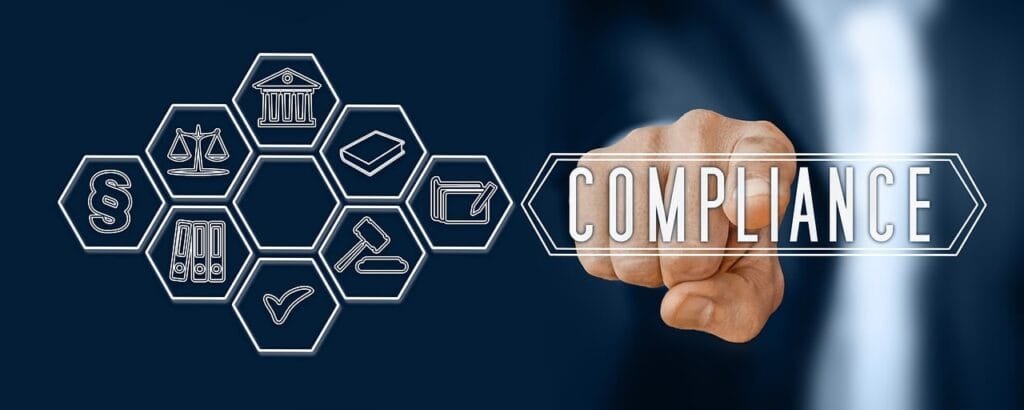Embarking on the adventure of forming a company in the UK, you’ll encounter various roles and responsibilities that are pivotal to your journey’s success. Among these, the role of the company secretary emerges as a beacon of guidance and governance, ensuring that your venture not only sets sail but also navigates the regulatory waters smoothly and efficiently. In the tapestry of UK company formation, the company secretary’s role is often likened to that of a lighthouse keeper; both are tasked with the vital job of ensuring safe passage in complex environments. While the lighthouse keeper illuminates the way for ships, the company secretary sheds light on the path of compliance and best practice, guiding the company through the fog of legal obligations and procedural intricacies.
- The Lighthouse Keeper of Corporate Compliance
- Ensuring Smooth Sailing in Company Formation
- The Architect of Operational Efficiency
- Navigating Strategic Planning and Corporate Governance
- The Beacon for Ethical Business Practices
- The Digital Vanguard: Company Secretaries in the Digital Age
- Lifelong Learning: The Key to Navigating Future Challenges
- Conclusion
The Lighthouse Keeper of Corporate Compliance
The company secretary, in essence, acts as the guardian of the company’s compliance framework, ensuring that the business adheres to corporate governance and statutory obligations. This role includes a myriad of responsibilities, from maintaining statutory books and records to ensuring filings are completed accurately and on time with Companies House. Just as a ship relies on the beacon of a lighthouse to avoid perilous rocks, a company depends on the precision and vigilance of the company secretary to steer clear of regulatory pitfalls that could jeopardize its standing or result in financial penalties.
Navigating Statutory Obligations
A primary facet of the company secretary’s role is navigating the company through the sea of statutory obligations imposed by UK law. This includes the preparation and filing of annual returns, maintenance of shareholders’ records, execution of statutory filings, and updating the registrar on any significant changes within the company, such as alterations in directorship or changes in share capital. These tasks, though seemingly administrative, are crucial cogs in the machinery of corporate compliance, ensuring the company remains in good legal standing.
The Beacon of Governance and Best Practice
Beyond compliance, the company secretary also plays a critical role in upholding corporate governance and best practice within the company. This involves organizing board meetings, preparing meeting agendas, taking minutes, and ensuring board decisions are implemented effectively. By facilitating clear communication and documentation of board activities, the company secretary ensures that the company not only meets its legal obligations but also adheres to internal policies and procedures, maintaining the trust of shareholders and stakeholders alike.

Ensuring Smooth Sailing in Company Formation
For entrepreneurs venturing into the UK’s corporate landscape, understanding the value of a company secretary from the outset can significantly smoothen the company formation process. This role, while not mandatory for private companies since the Companies Act 2006, remains a cornerstone of effective corporate governance and compliance strategy, particularly for larger or public companies where the complexity of regulatory requirements intensifies.
A Guiding Light in Company Formation
From the initial stages of company formation, the company secretary can provide invaluable guidance on the legal and procedural aspects, helping to lay a solid foundation for the company’s operations. This includes advising on the company structure, drafting the Articles of Association, and ensuring that the company’s registration complies with UK law. Their expertise not only aids in the efficient establishment of the company but also sets a precedent for rigorous governance and compliance discipline as the business grows.
The Architect of Operational Efficiency
In the bustling ecosystem of a company, operational efficiency is paramount. The company secretary significantly contributes to this aspect by streamlining corporate administrative processes and ensuring that the company’s statutory obligations are managed effectively and efficiently.
Streamlining Administrative Processes The company secretary often acts as the central hub for communication within the company, coordinating between the board of directors, shareholders, and regulatory bodies. By efficiently managing this flow of information, the company secretary ensures that decision-making processes are smooth and that the company remains compliant with its reporting obligations. This role involves organizing and archiving important documents, managing corporate records, and ensuring that all company transactions are conducted according to legal requirements and best practices.
Facilitating Regulatory Compliance Beyond the basic compliance requirements, the company secretary stays abreast of changes in legislation that might affect the company. They ensure that the company not only understands these changes but also adapts its operations accordingly. This proactive approach to compliance management helps prevent potential legal issues and keeps the company on a steady course, avoiding the disruptive waters of regulatory non-compliance.
RapidFormations is an invaluable resource for entrepreneurs who seek a fast and efficient way to establish their business in the UK. Their streamlined process simplifies the complexities of company registration, especially for overseas clients. With RapidFormations, you can ensure that your business not only complies with UK laws but is also set up for success from day one. Whether you’re expanding into the UK market or starting fresh, their expertise will guide you through every step of the formation process. Try it out now!
1stFormations offers comprehensive company formation packages tailored for non-residents, making it simpler to establish your business presence.
Explore the eSeller and Prestige packages for an all-inclusive solution that covers your company registration and essential services at a discounted rate. With services ranging from registered office addresses to VAT registration, the Non-residents Package is particularly advantageous for those without a UK address. It’s designed to meet all your initial business needs while ensuring compliance with UK regulations.
Navigating Strategic Planning and Corporate Governance
In the intricate dance of strategic planning and corporate governance, company secretaries play a pivotal role, orchestrating movements that ensure the company not only performs its routine steps flawlessly but also gracefully adapts to the ever-changing rhythm of the business world. As startups in the UK embark on their journey, the company secretary’s role in navigating through strategic planning and corporate governance becomes even more critical, serving as both a compass and a keel to keep the venture on course and stable.
Catalyzing Strategic Initiatives
Company secretaries serve as the catalysts for strategic initiatives, transforming boardroom discussions into actionable strategies. They facilitate the translation of visionary ideas into structured plans, ensuring that objectives are clearly defined, measurable, and aligned with the company’s overall mission and values.
Enhancing Boardroom Dynamics The company secretary plays a crucial role in enhancing the effectiveness of board meetings. By preparing comprehensive briefing packets, ensuring relevant information and analysis are available, and guiding discussions to stay focused on strategic matters, they enable board members to make informed decisions. This preparation and guidance are instrumental in fostering a boardroom culture that is dynamic, focused, and strategic in its outlook.
Implementing Strategic Decisions Once strategic decisions are made, the company secretary oversees their implementation, coordinating across departments and with external stakeholders to ensure that the company’s strategic goals are translated into operational reality. This involves monitoring progress, adjusting plans as necessary, and keeping the board informed of both achievements and obstacles. Their oversight ensures that strategic initiatives maintain momentum and are integrated into the company’s fabric.
Governing Corporate Ethics and Sustainability
In today’s business environment, corporate ethics and sustainability are not just optional; they are imperative for long-term success. The company secretary ensures that these elements are not only part of the strategic planning process but also embedded in the company’s governance structures.
Embedding Ethical Practices The company secretary guides the board in developing and implementing policies that embed ethical practices into the company’s operations. This includes everything from ethical supply chain management to fair employment practices and environmental responsibility. They ensure that ethical considerations are part of every strategic decision, reflecting the company’s commitment to operating responsibly.
Sustainability as a Strategic Objective Sustainability is increasingly seen as a core strategic objective, vital for ensuring the company’s longevity and social license to operate. The company secretary helps to integrate sustainability goals into the company’s strategic planning, advising on how these objectives support the company’s overall mission and values. They also oversee the reporting on sustainability initiatives, ensuring transparency and accountability to stakeholders.
Fostering Stakeholder Engagement
Effective corporate governance requires active engagement with a broad spectrum of stakeholders, from shareholders and employees to customers and the wider community. The company secretary plays a key role in facilitating this engagement, ensuring that the company maintains open lines of communication and builds strong, trust-based relationships with its stakeholders.
Strategic Communication Developing a strategic communication plan that outlines how and when the company communicates with its stakeholders is crucial. The company secretary ensures that communications are consistent, transparent, and reflect the company’s strategic objectives. This not only helps to build trust but also ensures that stakeholders are informed and can provide feedback that may influence future strategic directions.
Annual General Meetings (AGMs) and Beyond The organization of AGMs is a significant aspect of the company secretary’s role, providing a forum for direct engagement with shareholders. They ensure that these meetings are not only compliant with legal requirements but also serve as an opportunity for meaningful dialogue about the company’s strategic direction, governance practices, and performance.

The Beacon for Ethical Business Practices
As startups embark on their business voyage in the UK, navigating the complex waters of ethical business practices becomes paramount. In this journey, the company secretary emerges not just as a guide but as a beacon, illuminating the path to ethical integrity and corporate responsibility. This role transcends traditional compliance, embedding ethical values at the heart of the company’s operations and culture. Here’s a deeper exploration into how company secretaries can champion ethical business practices, ensuring startups not only grow but also contribute positively to society and the environment.
Establishing a Framework for Ethical Decision-Making
The company secretary lays the foundation for ethical decision-making within the company. This involves creating a framework that outlines how decisions are evaluated not just on their economic outcomes but on their impact on stakeholders, the environment, and society at large.
Ethical Charter Creation Developing an ethical charter or code of conduct is one of the first steps. This document should reflect the company’s core values and provide clear guidelines on expected behaviors and decision-making processes. The company secretary ensures this charter is integrated into all aspects of the company, from employee onboarding to daily operations, making ethics a living part of the company culture.
Training and Awareness Programs Implementing regular training and awareness programs helps embed these ethical standards across the company. The company secretary organizes sessions that not only educate employees about the ethical code but also engage them in discussions about its practical application, encouraging a culture where ethical considerations are front and center in everyone’s mind.
Championing Transparency and Accountability
Transparency and accountability are cornerstones of ethical business practice. The company secretary plays a critical role in ensuring that the company operates in an open and accountable manner, fostering trust among stakeholders.
Transparent Reporting Mechanisms Implementing mechanisms for transparent reporting on the company’s activities, particularly those related to ethical, social, and environmental matters, is essential. This might include annual sustainability reports or regular updates on social initiatives. The company secretary oversees the preparation of these reports, ensuring they are comprehensive, accurate, and accessible to all stakeholders.
Whistleblower Policies and Ethics Hotlines Setting up systems that allow employees and other stakeholders to report unethical behavior without fear of retaliation is another critical area overseen by the company secretary. This includes establishing whistleblower policies, ethics hotlines, or other reporting mechanisms. By ensuring these systems are in place and functioning effectively, the company secretary helps maintain an ethical workplace where issues can be addressed promptly and thoroughly.
Fostering a Culture of Ethical Leadership
The influence of leadership on a company’s ethical culture cannot be overstated. Company secretaries advise and support the board and senior management in embodying ethical leadership, setting a positive example for the entire organization.
Role Modeling by the Board The company secretary works closely with the board to ensure that its members not only understand their role in fostering an ethical culture but also actively model this behavior in their actions and decisions. This might involve organizing board-level workshops on ethical leadership or facilitating discussions on how the board can better promote ethical practices within the company.
Embedding Ethics into Corporate Strategy Ensuring that ethical considerations are embedded into the company’s strategic planning process is another vital function. The company secretary advises the board and management on how ethical considerations can be integrated into business strategies, ensuring that the company’s growth and success are achieved responsibly and sustainably.
RapidFormations is an invaluable resource for entrepreneurs who seek a fast and efficient way to establish their business in the UK. Their streamlined process simplifies the complexities of company registration, especially for overseas clients. With RapidFormations, you can ensure that your business not only complies with UK laws but is also set up for success from day one. Whether you’re expanding into the UK market or starting fresh, their expertise will guide you through every step of the formation process. Try it out now!
1stFormations offers comprehensive company formation packages tailored for non-residents, making it simpler to establish your business presence.
Explore the eSeller and Prestige packages for an all-inclusive solution that covers your company registration and essential services at a discounted rate. With services ranging from registered office addresses to VAT registration, the Non-residents Package is particularly advantageous for those without a UK address. It’s designed to meet all your initial business needs while ensuring compliance with UK regulations.
The Digital Vanguard: Company Secretaries in the Digital Age
In the swiftly evolving digital age, the role of company secretaries transcends traditional boundaries, positioning them as digital vanguards within UK companies. This transformation requires not only a deep understanding of digital tools and platforms but also a strategic approach to leveraging technology for governance, compliance, and operational excellence. Here’s an in-depth exploration of how company secretaries can embrace this role, guiding startups to thrive in the digital ecosystem.
Orchestrating Digital Transformation
The company secretary plays a pivotal role in orchestrating the digital transformation of corporate governance and operations, ensuring that the adoption of technology aligns with the company’s strategic objectives and compliance requirements.
Driving Digital Boardroom Initiatives Modern governance demands digital savvy boardrooms. Company secretaries can lead the charge in implementing digital board portals that streamline the preparation, distribution, and archiving of board materials. These portals not only enhance efficiency but also secure sensitive information and facilitate better decision-making through real-time data and analytics.
Advocating for Integrated Compliance Technologies Navigating the complex landscape of compliance in the digital age requires sophisticated solutions. Company secretaries can advocate for the adoption of integrated compliance technologies that automate regulatory monitoring and reporting. By leveraging AI and machine learning, these platforms can predict compliance risks and streamline the reporting process, ensuring that startups remain agile and compliant.
Harnessing Digital Tools for Stakeholder Engagement
In an era where stakeholder expectations for transparency and engagement are at an all-time high, company secretaries can harness digital tools to foster meaningful interactions with shareholders, employees, and the broader community.
Leveraging Social Media for Transparency and Engagement Social media platforms offer unprecedented opportunities for direct communication and engagement with stakeholders. Company secretaries can oversee the strategic use of these platforms to share company news, insights, and governance initiatives, building trust and loyalty among stakeholders.
Virtual AGMs and Stakeholder Forums The digital age enables company secretaries to organize virtual annual general meetings (AGMs) and stakeholder forums, breaking down geographical barriers and increasing participation. These virtual events can be enhanced with interactive Q&A sessions, live polls, and breakout discussions, making governance processes more inclusive and engaging.
Elevating Data Protection and Cybersecurity
With the increasing digitization of corporate operations, the protection of data and cybersecurity emerges as a critical concern. Company secretaries are at the forefront of ensuring that startups not only comply with data protection laws like GDPR but also implement robust cybersecurity measures.
Implementing Data Governance Frameworks Company secretaries can lead the development of data governance frameworks that define how data is collected, stored, processed, and shared. This involves setting data protection policies, conducting data privacy impact assessments, and ensuring employees are trained on data security best practices.
Overseeing Cybersecurity Strategies Cybersecurity is no longer just an IT concern; it’s a board-level issue. Company secretaries can work with IT leaders to oversee the company’s cybersecurity strategy, ensuring it aligns with business objectives and regulatory requirements. This includes regular security audits, incident response planning, and fostering a culture of cybersecurity awareness across the organization.
Championing Digital Literacy and Continuous Learning
As digital vanguards, company secretaries must champion digital literacy and continuous learning within the organization, keeping pace with technological advancements and their implications for governance and business operations.
Curating Digital Literacy Programs Company secretaries can curate digital literacy programs for the board and employees, ensuring that everyone understands the potential and challenges of digital technologies. These programs can cover topics from cybersecurity awareness to the strategic use of data analytics and digital marketing tools.
Staying Ahead of Digital Trends To truly lead in the digital age, company secretaries must stay informed about emerging technologies and digital trends. This involves participating in professional development courses, attending tech industry conferences, and engaging with digital thought leaders. By staying ahead of the curve, company secretaries can guide their companies through digital transformation with foresight and confidence.

Lifelong Learning: The Key to Navigating Future Challenges
The rapidly changing business and regulatory landscape necessitates that company secretaries commit to continuing professional development to remain effective in their roles.
Staying Ahead of Regulatory Changes Ongoing education is crucial for company secretaries to stay updated on the latest regulatory changes and governance best practices. This may involve attending workshops, seminars, and conferences, or pursuing formal qualifications in corporate governance.
Building a Network of Knowledge Engaging with professional bodies, such as The Chartered Governance Institute UK & Ireland, provides company secretaries with access to a wealth of resources, training programs, and networking opportunities. These platforms allow them to exchange knowledge with peers, stay abreast of industry trends, and discuss emerging challenges in corporate governance.
Adapting to Strategic Advisory Roles As companies increasingly recognize the strategic value of the company secretary, continuing professional development helps these professionals build the skills and knowledge needed to act as advisors to the board. This includes understanding emerging business models, sustainability practices, and the impact of technological innovations on corporate governance.
RapidFormations is an invaluable resource for entrepreneurs who seek a fast and efficient way to establish their business in the UK. Their streamlined process simplifies the complexities of company registration, especially for overseas clients. With RapidFormations, you can ensure that your business not only complies with UK laws but is also set up for success from day one. Whether you’re expanding into the UK market or starting fresh, their expertise will guide you through every step of the formation process. Try it out now!
1stFormations offers comprehensive company formation packages tailored for non-residents, making it simpler to establish your business presence.
Explore the eSeller and Prestige packages for an all-inclusive solution that covers your company registration and essential services at a discounted rate. With services ranging from registered office addresses to VAT registration, the Non-residents Package is particularly advantageous for those without a UK address. It’s designed to meet all your initial business needs while ensuring compliance with UK regulations.
Conclusion
In the dynamic landscape of UK company formation, the role of the company secretary emerges as both pivotal and multifaceted. Far from being just a ceremonial title, the company secretary acts as the linchpin of corporate compliance, governance, and strategic planning. From the initial stages of setting up the company, navigating through the complexities of legal and regulatory frameworks, to steering the company towards ethical practices and digital transformation, the company secretary stands as a guardian of the company’s integrity and a catalyst for its growth. As businesses evolve in the digital age, the role of company secretaries continues to expand, requiring a blend of traditional diligence with modern technological savvy. Ultimately, the success of a UK company formation can significantly benefit from the strategic insights, operational expertise, and ethical guidance provided by a skilled company secretary, making them an indispensable asset to any company aiming for long-term success in today’s competitive and ever-changing business environment.
Read Next
- How to Form a Company in the UK While Living Abroad
- Unlocking the Potential of LLPs in UK’s Company Formation Scene
- Building Your E-commerce Empire: UK Company Formation Essentials
- How to Choose Between Limited Company and Partnership in the UK
- Brexit and Your Business: Company Formation in the New Landscape






















Comments are closed.